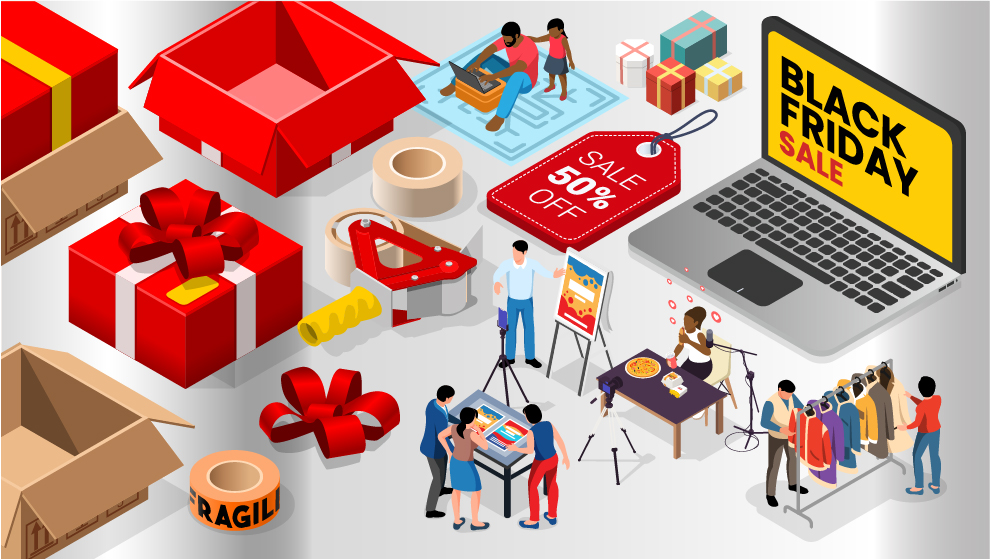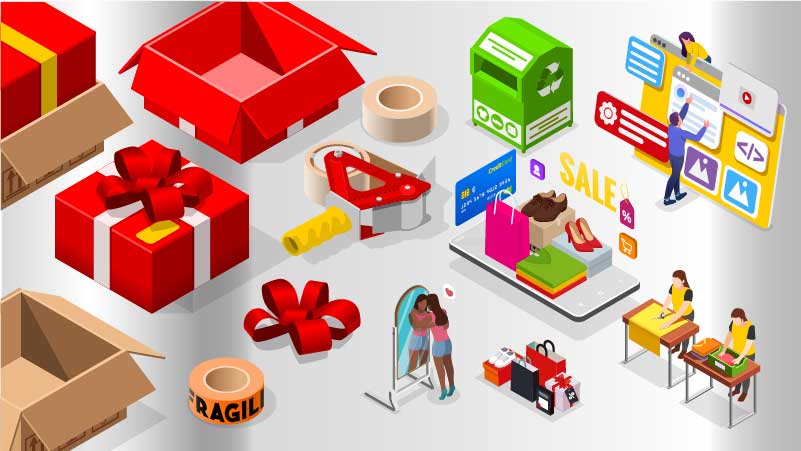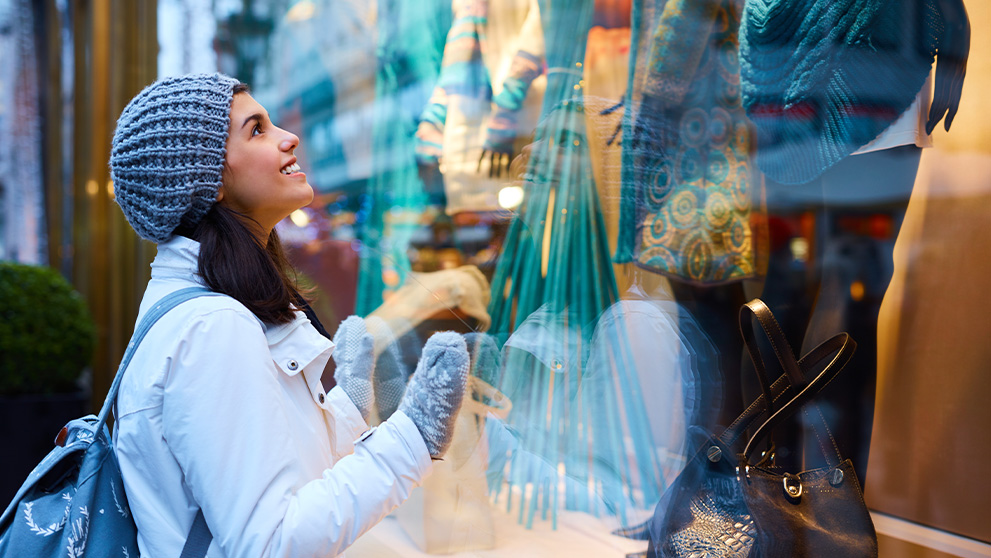Looking for ideas for sustainable products to sell this peak season? The category will be in hot demand amongst consumers, so here’s our quick guide for e-commerce businesses.
Consumers are going green — in a big way. In 2022, sales of sustainability-marketed products took 17.3% of total market share,1 whilst around a quarter of shoppers are prepared to pay more for items with better sustainability credentials2.
Now is the right time to add more planet-friendly products to your range — but which ones should you choose? Let’s look at the biggest eco trends in the run up to Christmas.

Greener Christmas décor
Knowing that many plastics are unable or unlikely to be recycled, businesses are increasingly looking for ways to reduce their use. John Lewis, one of the UK’s biggest retail chains, is leading the charge with its partnership with NKUKU to sell recycled glass baubles, tabletop trees, and tree toppers(3).

Handmade = sustainable?
Handmade items are often more sustainable, made from renewable materials like wood or being of a higher quality (and therefore longer lasting) than many off-the-shelf items. Online marketplace Etsy’s insights show that buyers are opting for reusable advent calendars, paper decorations, recyclable wrapping paper, and ornaments made of solid hardwood over plastic. The platform reports a 277% year-on-year increase in searches for “wooden Christmas tree decor”(4).

Cleaner beauty
Reports show that 76% of consumers are now seeking out sustainable beauty products(5). Many of the leading brands are capitalizing on the “clean beauty” movement, marketing their product lines as free from “harmful” chemicals. Simple, natural, and plant-based are the watchwords here.

Slow fashion
The fashion industry has, in the past, favored fast fashion cycles that move to new styles every few months (or even weeks). But the tide is changing. Sustainability in the fashion sector is no longer an idea, but a reality. 2023 trends include material innovation, such as Nike using Piñatex(6) — a natural leather alternative made from pineapple leaf fibers — and the use of use of regenerative fabrics.

Sustainable packaging
It’s not just the products themselves that shoppers are paying attention to — in a consumer survey by McKinsey(6), more than 60% of respondents said they’d pay more for a product with sustainable packaging. So, consider how your goods are arriving to your customers — it will have a big impact on their perception of your brand. Prioritize recyclable materials and minimal waste.

Harness the sun
Solar-powered holiday lights and decorations will be a big draw to eco-conscious homeowners who want to minimize their energy consumption and reduce their carbon footprint.

Gifts with purpose
Shoppers are looking for gifts that give back(7). This includes products that support charitable causes, donate a portion of sales to environmental initiatives, or promote fair trade practices.

Zero waste products
These are essentially those which favor reusable and recyclable materials over single-use, disposable ones. Examples such as stainless-steel straws, bamboo cutlery, and cloth bags promote sustainability by minimizing waste.
Know your audience to determine which sustainable products to sell
Choosing which sustainable products to add to your inventory is dependent on your specific target audience. Priorities can vary between groups; for example, nearly half of Gen Z consumers say they conduct extensive research on product ingredients before purchase8. Use customer data (for example, sustainable products they’re searching for on your website that you don’t currently sell), invite feedback on social media, and pay close attention to trends within your sector to help you decide which products you could sell.
Think beyond just products
We hope these trends have given you some inspiration for your product range this peak season. Of course, if you want to take your business down a greener path, there are many more considerations. Sustainability in logistics planning considers your inventory management, last-mile delivery, and returns processes too.
Wondering where to begin? With a DHL Express Business Account, you’ll have access to a range of dedicated GoGreen solutions that will help you reduce your carbon emissions.










